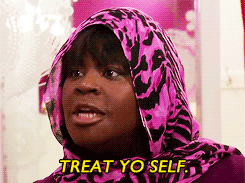This Eating Disorder Affects Type 1 Diabetics And We Need To Talk About It More
There’s an eating disorder which comes with all the typical soul-destroying, unforgiving symptoms, but is also partnered with a lifelong, chronic illness. It’s been described as the most dangerous eating disorder, and yet many people have never heard of it.
Diabulimia?, I hear you say. Despite not officially being a medically recognised condition, diabulimia is a very real disease. Based on the words diabetes and bulimia, it refers to an eating disorder which can develop in type one diabetics.
Type one diabetes is (currently) an incurable condition, where the body stops producing insulin. Unlike type two, there is no link to lifestyle and we don’t really know what causes it. I have been diabetic since I was seven. I can barely remember my life before it was dictated by numbers, and yet I only heard the term diabulimia for the first time two years ago. Sure, I’d seen aspects of it within myself and other diabetics, but it’s not a very high profile condition.
We all know the struggle that comes with eating disorders and food. For many, it’s a constant battle between tackling hunger and maintaining control. But imagine if you could eat whatever you wanted, no matter the calorie content, and not only would you not put on any weight, you’d actually start losing it. This is what happens if type one diabetics stop taking their insulin. How? Diabetics inject insulin when they eat, as this is the hormone responsible for breaking your food down into energy. If we avoid taking insulin, sugar can’t be used and just builds up in our blood. In a panic, our body knows it must to find an alternative way to burn the energy. It turns to our fat. It’s the perfect diet, right?
Well no. As eating disorders go, there is no nice one. I’m not going to put anyone down and invalidate their experiences, but there is an aspect to diabulimia which is really, really concerning. And that’s the domino effect it causes, spiralling out in to more and more life-threatening complications.
The thing about diabulimia is that you’re battling all the typical problems that come with an eating disorder – weight loss, mental health problems etc. – but on top of that, you are trying to manage a chronic illness. Those with diabulimia must neglect their diabetes, in order to restrict their insulin intake and lose weight, which then leads to more problems. When our body burns fat, this makes a by-product called ketones. Ketones are a bit of a code red when it comes to diabetes. They’re the reason I’ve had days off of work, stumbling disorientated to the bathroom to be sick again.
But it doesn’t stop there! Ketones are a short-term consequence to high blood levels, but what about the long term? Diabetics who stop taking their insulin suffer bad blood control, and over time this can cause some serious complications. We’re talking blindness, kidney failure, amputations – all the good stuff.
So why the hell is such a worrying condition barely recognised? This is a condition which patients have died from, surrounded by eating disorder specialists, because they aren’t grasping links between body image and insulin. I get it – this is a rather specific disease, which we aren’t all at risk of. But that isn’t a reason to neglect those who do need help. 60% of female type one diabetics have experienced an eating disorder by the age of 25.
There is only one charity in the UK for support with diabulimia, Diabetics With Eating Disorders (DWED). It was launched in 2009 by Jacqueline Allan, after the death of her friend as a result of the condition. I think the most worrying part is how bad things have to get before people actually turn around and say, hmmm, I think there’s a pattern occurring here…
There are many diseases much worse than diabetes — but it is always there. You never get a day off from diabetes. Everything affects your blood levels, from food and alcohol, to stress and adrenaline. Even somebody with the best control will have highs and lows because that’s just how it works. And the pressure to control that – to steer away from complications – can be pretty hard-hitting. So, I can understand why people say sod this. It’s so easy to just miss out an injection, and that’s why there needs to be more support in place for people taking a wrong turn.
Don’t assume that somebody is just being a drama queen. 'Stop being stupid, just take your insulin,' is about as insensitive as telling an anorexic, 'stop being stupid, just eat.' It’s not that simple.









